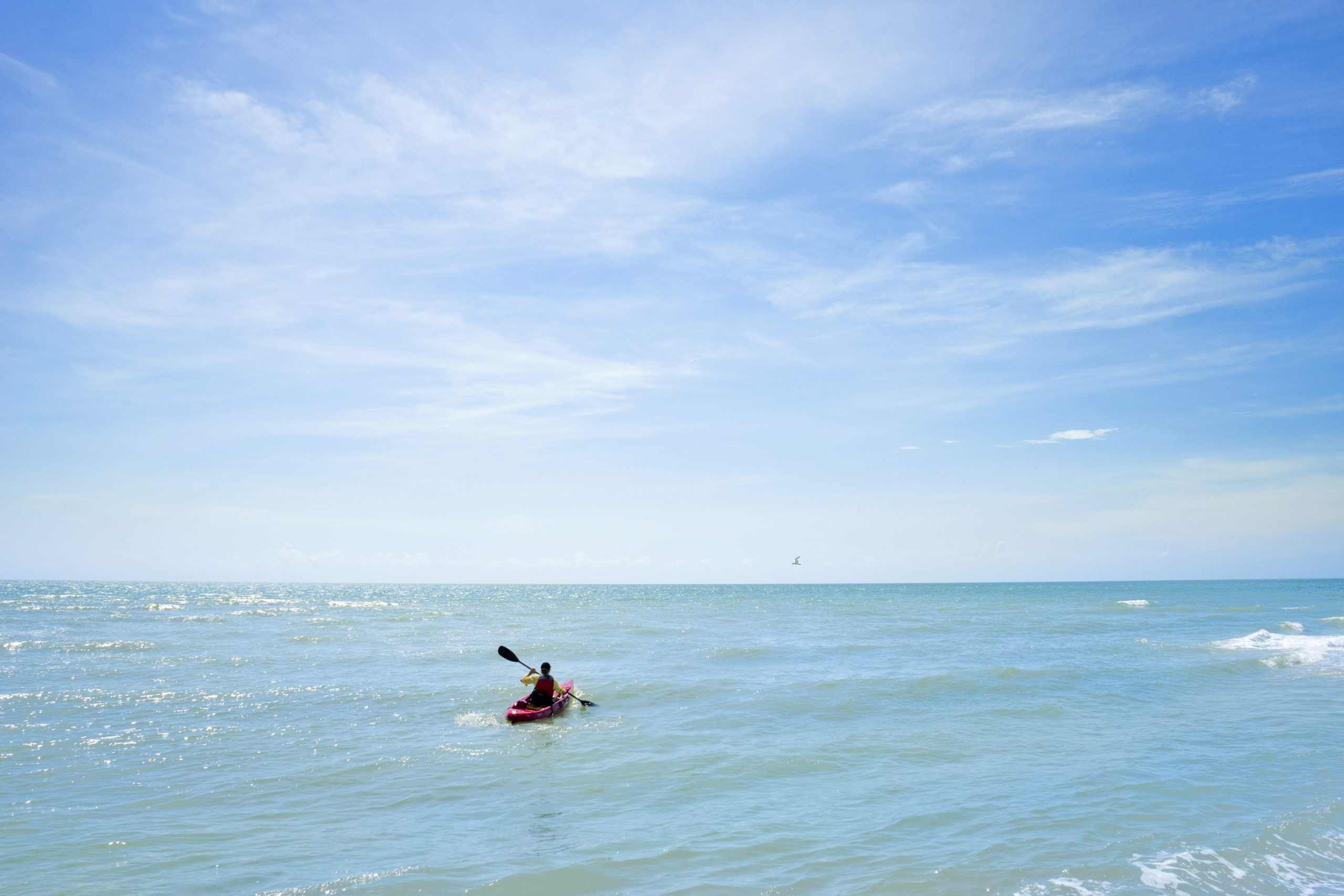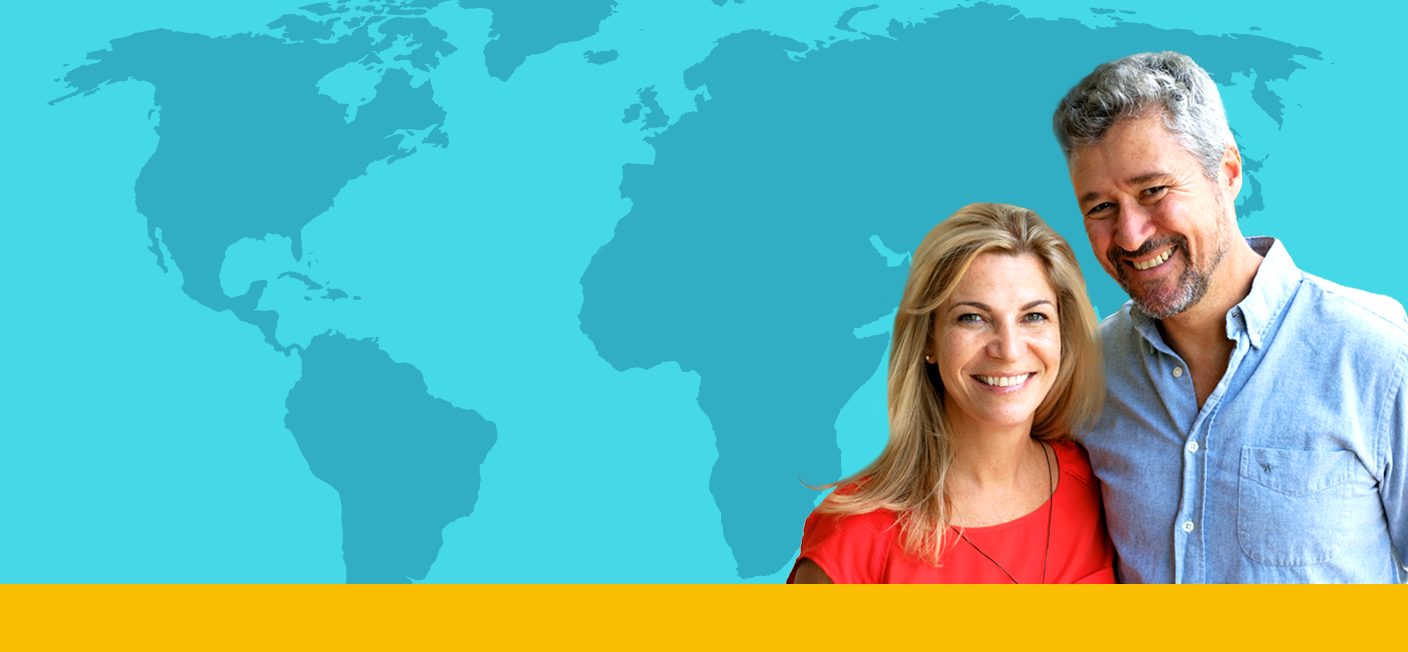Last Updated on April 26, 2021
If you’ve ever had an interest living abroad, retirement might be the right time to give it a try and save yourself thousands.
A couple upgraded their lifestyle when they moved from the United States to Vietnam 13 years ago. At the same time, they saw their annual expenditure drop by over $115,000. This represents a trend — retirees saving tens of thousands of dollars by relocating to more affordable locales around the world.
“When my husband, David, and I last lived in the United States in 2005, we gave up our jobs that were bringing in a total of about $140,000 annually,” said Wendy Justice, an “International Living” Vietnam correspondent. She continued:
“Out of that, we were paying about $25,000 for rent, $3,000 for utilities, $5,000 for insurance, about $7,200 for groceries, $6,000 for two car payments, $6,000 for gas and car maintenance, around $50,000 for federal, state, and local income taxes, around $18,000 for a 401k retirement plan and savings and around $20,000 for entertainment and miscellaneous expenses — $140,200 per year.
“These days, our budget looks more like $24,225. Rent, $9,000. Utilities, $1,200. Insurance, none. Groceries, $1,800..Car payment, none. Gas and maintenance on our motorbike, $125. Taxes, $4,500. Entertainment and miscellaneous expenses: $3,600. Annual trip to the States: $4,000 (airfare, car rental, misc. expenses).
“So, if we had stayed in the States for the past 13 years, we would have spent around $1,822,600. We’ve spent around $314,925 since leaving the States. That’s a total savings of $1,507,675. Figured annually, we’re saving $115,975 for every year that we’ve lived abroad.”
Justice said she and her husband have, while lowering their cost of living, simultaneously improved their quality of life. She said they live in a house that’s nicer than one they could have afforded back in California, a housekeeper cleans for them twice a week, they have access to low-cost medical and dental care, they eat out at least once a day — an indulgence that was out of the question when they were in the States — and there’s still enough left over in the budget for lots of little splurges.
“I guess I’m in that ‘Million Dollar Club’ with all the money I’ve saved,” she said.
Justice is among a growing number of savvy expats enjoying the fact that while their cost of living is lower overseas, they’re in fact able to afford more comforts.

Six years ago, “International Living” correspondent Tricia Pimental and her husband moved to Portugal. Not only did their day-to-day lifestyle improve — enhanced by warm weather, friendly locals, and beautiful surrounds, but their cost of living dropped at the same time.
“Has moving overseas enhanced my financial situation? You bet,” she said. “When Keith and I last lived in the United States in 2012, our monthly expenses were hefty at about $4,000 a month; but travel, gifts, income and property taxes, and unforeseen expenses, raised our average annual outlay to about $70,000.”
“In Portugal, we spend $1,750 per month less than what it cost us for the same (expenses in the United States). That adds up to a huge saving overtime,” Pimental said.
One of their most significant savings has been in property taxes. In America, they paid about $3,000 a year; but now, they pay approximately $600 per year on their Portuguese home.
“We’ve maintained our lifestyle, with the same-size home, frequent travel and entertaining, so the difference may not be as remarkable as other expats have experienced,” Pimental said. “Nevertheless, we have saved about $126,000 over the last six years, and expect to continue to do that and more, as the cost of living in the States rises while it remains fairly constant here in Portugal. We’re so grateful to experience a lower cost of living, especially in such a lovely and peaceful a country,” she said.
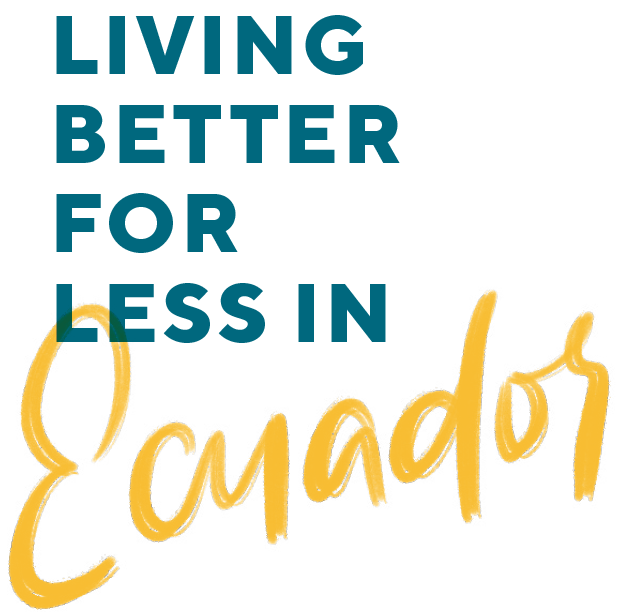
Donna Stiteler grew up in St. Petersburg, Florida, where retirees flock, attracted by the warm weather and lack of state income taxes. But in February 2014, she and her husband, Rowland, embarked on a new journey in search of somewhere cheaper to live — Ecuador. “Why would I leave my seaside home by one of the best beaches in the U.S.? Well, Florida’s not so cheap anymore, and it’s hot,” she said.
“I’ve worked hard all my life and had good jobs but still didn’t put enough money into retirement funds to subsidize my retirement income, nor did I have a pension,” she said. Stiteler continued:
“Before I moved to Cuenca, I decided to run a spreadsheet to compare my expenses in Florida compared to Ecuador. I also wanted to make sure I could live off my Social Security of $1,750 in case I outlived Rowland. Now, after living here for more than four years, this has turned out to be a great choice for us.
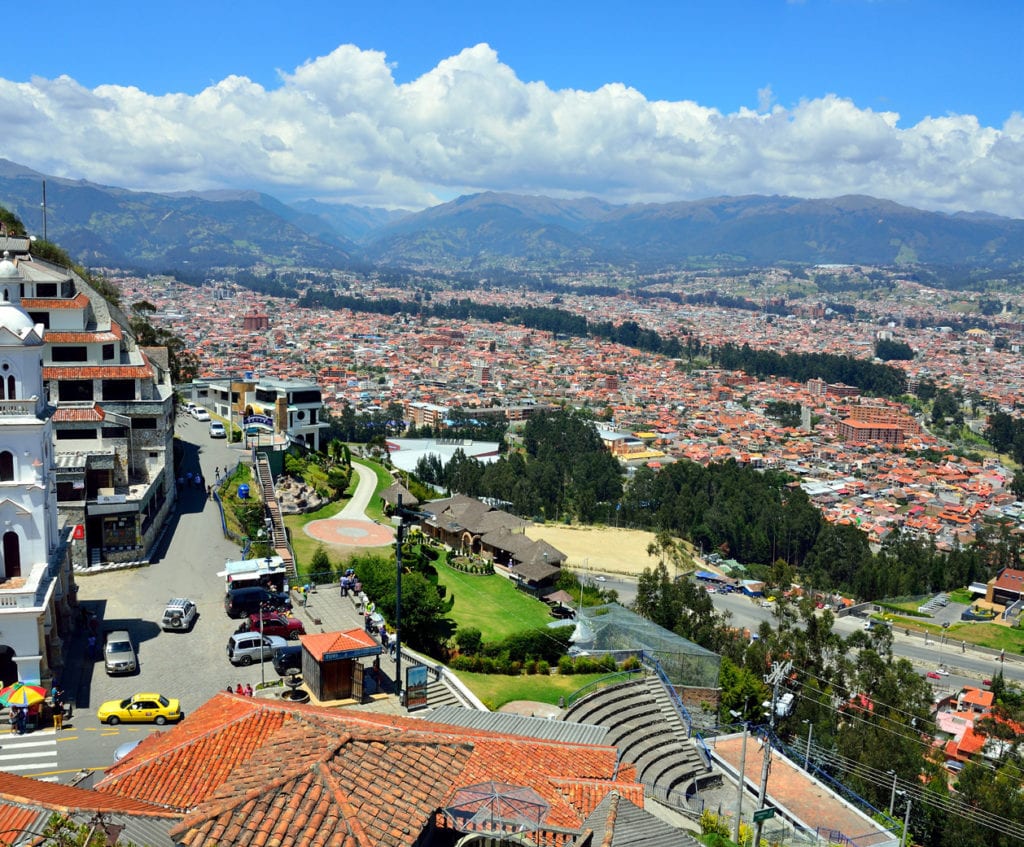
“I sold my house at a profit, which allowed me to buy outright a bigger, nicer home in Cuenca and skip the largest retirement expense in retirement — housing. (Rentals in Cuenca are also a cheap option at $400 and up, so it’s not necessary to buy.)
“I have no pension and only enough money in my IRA to cover emergencies and none to supplement my income on a monthly basis. Rowland and I have a total combined annual Social Security payment of $39,000 — but only if my husband outlives me. If I outlive him, my annual income would drop to $21,000. So, I also needed to be somewhere I could live on that alone.
“Our total yearly spend in St. Petersburg, Florida was $31,700, but in Cuenca, we only spend $17,676. We are saving big in Cuenca.”
Ecuador’s lower cost of living attracts many expats to this South American gem. Jim Santos and his wife, Rita, moved to Salinas, Ecuador, at the beginning of January, 2014. During that time, the Santoses have saved over a quarter of a million dollars.
“In the U.S. we were living in a waterfront condo on Maryland’s Eastern Shore,” Jim Santos said. “Our monthly expenses were averaging just over $6,000, or $72,000 per year. To add insult to injury, Maryland charges not only a state income tax, but you then add an additional 50% to your bill for the county. Clearly, we were living just to work.” Santos continued:
“So we sold all of our U.S. properties and were then able to pay cash for both a smaller ‘safety house,’ which we now rent out in West Virginia, and our new home in Ecuador. In Salinas, on the Pacific Coast, we were able to secure a 2,000 square-foot, four-bedroom, four-bathroom condo. Bye-bye to the mortgage.
“When you work it out, our monthly expenses now average about $1,800, or $21,600 per year. That means that after five years in Salinas, we have saved a total of $252,000. “One of the most telling points is pretty obvious — I was able to retire at 57, just a year and a half after making the move.
“And that’s not all — the healthy lifestyle, fresh produce and seafood, and the great weather that encourages walking, helped me reduce my weight from 319 pounds down to 209. I was able to first reduce my medications for Type 2 diabetes and then eliminate them completely. This has undoubtedly given me a chance at a longer, more active life — and that’s a priceless return on our investment.”

Steve Le Poidevin and his wife, Nancy Le Poidevin, left Canada in 2008 and have enjoyed the lower cost of living overseas since then. Today, they live in Peru, one of the least expensive countries in the world for retirees — a place where residents need not compromise on quality of life.
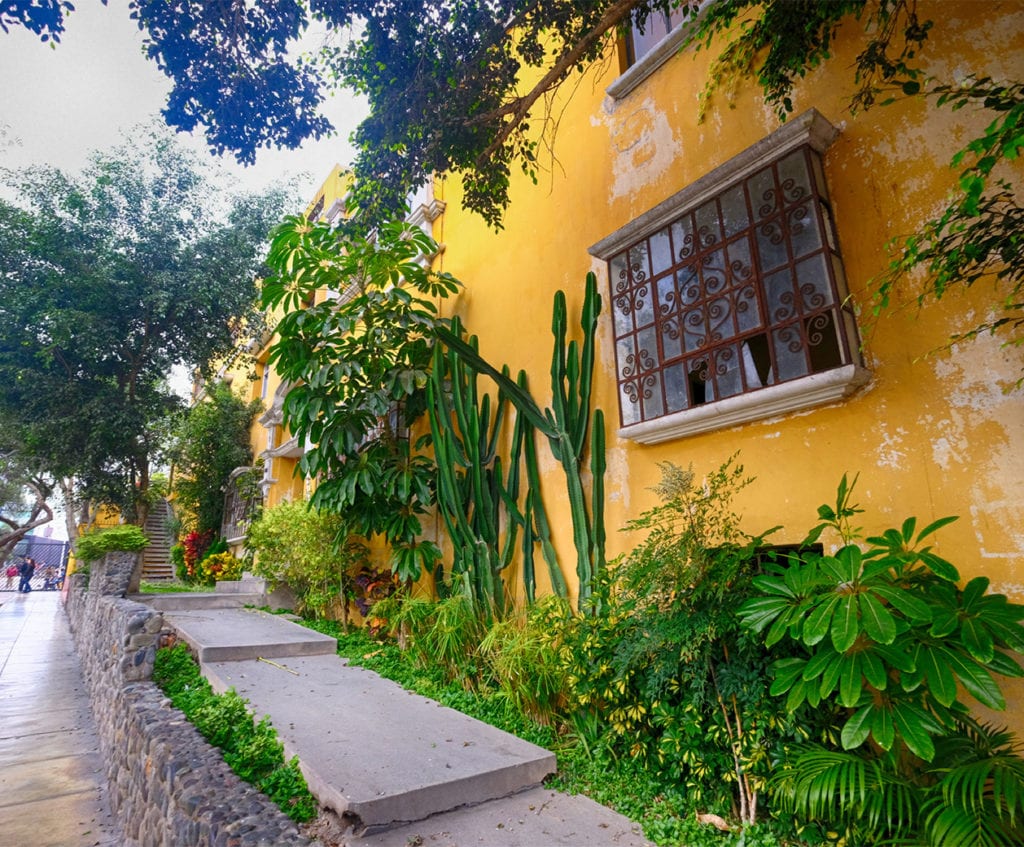
“Our basic living costs, including taxes, pension contributions and unemployment contributions, were about $60,000 a year in Canada,” Steve Le Poidevin said.
“Today we spend about $7,200 on rent, $4,800 on groceries, $400 on utilities, $1,200 on entertainment and $3,600 on insurance for an annual total of $17,200. We usually fly back to Canada every couple of years, which costs about $2,000, so that brings our annual total up to just over $19,000,” Le Poidevin said. He continued:
“We’ve been gone from Canada for a decade, and we have easily saved over $40,000 per year.
“Moving abroad allowed us to retire early, see the world and live in a world absent of snow and cold — for much less money than we would have spent had we stayed. And we also gained the extra benefit of living in large, urban areas with all the amenities, like Chiang Mai, Thailand, and now Trujillo, Peru.”










